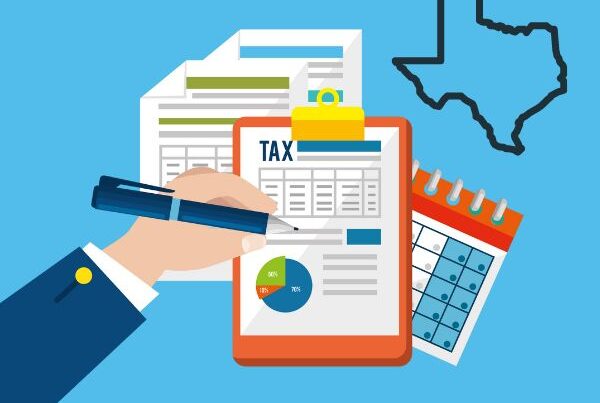Recent online sales tax trends are taking many ecommerce sellers by surprise and leaving them with hefty, unplanned tax bills. For some business owners, those surprises are breaking the bank. This is serious news, and we want to help you avoid that scenario altogether.
So, what’s on the horizon for sales taxes this year? Namely, potential big impacts initiated at the state-level. Let’s dive in and look at the specifics. You can also watch a breakdown on our recent video Online Sales Tax Trends.
Aggressive State Audits
It’s no surprise that states are currently suffering significant revenue losses from traditional sources. The pandemic brought thousands of brick-and-mortar businesses to a near standstill. Some even, had to close their doors for good.
So, where are the states turning their attention? You got it, eCommerce.
States are trending to looking for unregistered and underpaying online sellers to amp up their revenue base. It’s important to note that they’re checking for both sales tax and use tax. And their tactics are aggressive.
In some states, such as California and Washington, they’re partnering with Amazon to obtain lists of online sellers to audit. Still other states, like Michigan, New York and Texas, are dumping resources toward sales tax compliance by sending out more auditors to go after online sellers.
We outlined these tactics and a few others in our recent video Online Sales Tax: Aggressive states to be aware of and why. It’s a good one to have on your radar for 2021.
While an audit may be unavoidable, having to pay unplanned taxes doesn’t have to be in your future. We’ll touch upon a few specific ways to avoid that scenario in the topics below.
Economic Nexus Ruling
We anticipate the states that currently have not adopted the economic nexus ruling from South Dakota v. Wayfair 2018 (or commonly referred to as the Wayfair ruling) will do so in 2021. Florida and Missouri are the only states without the adoption.
For those unfamiliar with the Wayfair ruling, it’s the Supreme Court decision that gives states the ability to impose sales tax on transactions within the state even if the vendor doesn’t have a physical presence there.
A key concept to this ruling is that of economic nexus. This is a condition where the seller must pay state sales tax if their sales activities meet a set level of annual sales or number of transactions. In general, the thresholds for economic nexus start at $100k in annual sales and/or 200 annual transactions, but those numbers can vary by state. There are other types of sales tax nexus, which if you’re curious about, we describe here.
Marketplace Facilitator Rules
We also anticipate additional states to adopt marketplace facilitator rules which require the platform facilitating the sale (such as Amazon, Etsy, and eBay) to collect and remit the sales tax rather than the seller themselves. States started imposing these laws back in 2017 as a way to deal with fewer entities in collecting online sales tax; thus, making their process more effective.
As states adopt these tax laws, it becomes critically important for online sellers to be aware of which states they must register in because of economic nexus and, if they are selling through a marketplace facilitator, which states they will not be required to conduct the tax collection and remittance process themselves.
Especially concerning the question of economic nexus, being aware of the state-by-state differences is imperative to avoiding those hefty unplanned tax bills. These can also carry hefty penalties and interest charges if state auditors determine any violations were made.
On that note, we also stress the importance of registering your business in a state when applicable and doing so on time. It’s a BIG no-no for sellers to start collecting taxes from their customers before registering their business in the state. At best, it will be considered negligence and at worst, fraud. Severe penalties, including criminal penalties, can be given to any parties deemed guilty.
Streamlined Sales Tax
Now that we’ve shared the not so good news about states and sales taxes, let’s turn to a more positive note, which is that many states are coming out with easier ways for taxpayers to pay and remit sales tax.
Some states are working with the organization Streamline Sales Tax, to do just that–streamline the sales tax administration system and make it easier for sellers to comply with tax laws. Some examples include Pennsylvania, which has recently come out with a streamlined system, and New Mexico and Connecticut which are in the process of developing updated systems.
As eCommerce continues to grow, we hope even more states will follow suit.
Tax Software Updates
These days, tax software is more important than ever in ensuring sellers have captured their sales tax liability accurately. Tax systems, as we all know, are complicated and change frequently. This is why using software with the latest tax updates is a must.
Our tax software partners, such as Taxify and Avalara, are constantly updating their databases to incorporate the most recent tax rates and taxability of different products, which makes it so much easier for sellers to be completely compliant with tax requirements. We know when we use their tools, we can come up with very accurate numbers for tax findings.
Federal Legislation Changes
Sales tax systems are a real challenge and are a burden to navigate, especially for small businesses. So, we’ve talked about what to anticipate from the states for online sales tax trends in 2021. You may also be wondering about changes at the Federal level. Do we expect any legislation from Congress that may make life easier for businesses?
It’s pretty apparent that broad reaching improvements are needed; however, we just don’t see it happening at a national level in 2021. In the meantime, we’re looking to the states to come out with simpler ways for remote sellers to collect and remit sales taxes. This would make it easier for eCommerce to comply.
Need more help with your eCommerce sales tax? Reach out to us here: http://ledgergurus.com/services/sales-tax






